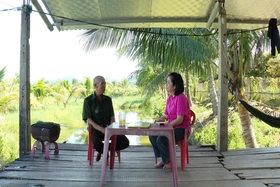LuG7g1194bqt4buJNuG7oeG7oeG7tnvhu51Q4buFcOG7iWJ7IS7hu6Fw4bufa2rhu4ch4buzfeG6qDZ94buAYuG7oXDhu4Xhu6s24buJJX3hu5w24bqta+G7g33hu51ia+G7neG7iWIn4buhfeG7seG7heG7oeG7g33hu4Fr4buffeG7nWI24bqtYn02auG6qX3hu53hu59r4buh4budYuG7n+G7hXDhu68uL+G7oXDhu59rauG7hyEuL+G7g10hLuG7nX3huq3hu4k24buh4buh4bu2e+G7neG7gmI24bqpeyEuYsSpIeG7nOG7n2Lhu6Fi4buf4burYuG6qX02auG6qX3hu4M2auG6qWLhuql94bqpa+G7sWp9cOG7g+G7n2tx4buH4buDfeG7h2JqYuG7nzZw4buFa2rhu6F9NuG7oX02feG7oeG7neG7heG7n+G7hXBxNuG7iX1w4bufYjbhu6Fx4bufYiZ9cOG7g2J94buzfeG6qDZ9a+G7n31KYuG7sX3hu57hu4Xhuq1ifeG6rGLhu4li4bqn4bufNnDhu4Vran3hu4Bi4buhcOG7heG7qzbhu4l94buF4buhfTZqfWvhuq3huq024buh4buFa2p94buBa+G7n31w4buDYn3hu5w24bqta+G7g31wa31i4but4bud4bufYuG7oeG7oX3hu4fhu582cOG7hXBx4bqpYn02auG6qX3hu53hu5824buvfeG7gWvhu599Nn3huqdxxKnhu51i4buffeG7gzbhu5/hu6ti4buhcH02auG6qX3hu53hu59r4buh4budYuG7n+G7hXDhu68/fS4vYsSpIS4v4budIS7hu5194bqt4buJNuG7oeG7oeG7tnvhu53huqZr4bqp4buveyFQ4buDYn1w4bufNuG6qeG7hXDhu4Vrajbhu4l94buBYuG7oXDhu4Xhu6s24buJfeG7gzbhu6F94bufYuG6rWJqcOG7ieG7r33huqdiYmp94bufYuG7oXBr4bufYuG6qX3huqfhu699cOG7g2J94bqoYuG7nTbhu59wxKlianB9a+G7gX3huqxx4buJcHHhu59ifTZq4bqpfeG7hGrhu4Fr4bufxKk2cOG7hWtqfWvhu4F94buCcWtq4buHfeG7gms2feG6qOG7heG7oXDhu5/hu4Xhuq1wfeG7hWp94bqta+G7ieG7iTbhuqdr4bufNnDhu4Vran3hu7Hhu4Vw4buDfXDhu4NifeG7nGJr4bud4buJYuKAmeG7oX3huqxrxKnEqeG7hXBwYmJ9a+G7gX3hu4jhu4U2feG6rGvEqcSpcWpiJn3hu4Ni4buJ4bud4buFauG7h33hu53hu59i4buhYuG7n+G7q2J9cOG7g2J94buBYuG7oXDhu4Xhu6s24buJfTZq4bqpfWvhu51iauG7hWrhu4d9ceG7nX02fWpi4buxfeG6qeG7heG7n2Lhuq1w4buFa2p94buBa+G7n33hu4lr4bqtNuG7iX3huq1rxKnEqXFq4buFcOG7ry3huqc24buhYuG6qX1wa3Hhu5/hu4Xhu6HEqX3hu4VqfXDhu4NifWpiNuG7n33hu4FxcHHhu59iPy4v4budIS7hu5194bqt4buJNuG7oeG7oeG7tnvhu53huqZr4bqp4buveyEuYsSpIS7hu4XEqeG7h33huq3hu4k24buh4buh4bu2e+G7heG6rGJqcGLhu597feG7oXDhu6/hu4li4bu2e+G7seG7heG6qXDhu4MlfTQ1NOG7neG7rSp94buDYuG7heG7h+G7g3AlfTEiIOG7neG7rSp7feG7oeG7n+G6reG7tnsvL+G6rT/huqc2a+G7o3E2auG7h3Dhu5/hu4U/4burai/huqli4buh4buLcGvhu50vamLhu7Hhu6EvIiAxIi9dIDHhuqlbXTFbWyIgcDEzNV3hu4kyLTbhuqk2P+G7sWLhuqfhu517fTbhu4lw4bu2e+G7s33huqg2feG7gGLhu6Fw4buF4burNuG7iSV94bucNuG6rWvhu4N94budYmvhu53hu4li4buhfeG7seG7heG7oeG7g33hu4Fr4buffeG7nWI24bqtYn02auG6qX3hu53hu59r4buh4budYuG7n+G7hXDhu697feG7seG7heG6qXDhu4Phu7Z7NDU0e33hu4Ni4buF4buH4buDcOG7tnsxIiB7fS8hLi9ixKkhLi/hu50hLuG7nX3huq3hu4k24buh4buh4bu2e+G7neG6rDbhu51w4buFa2p7IUvhu4Hhu4Fi4buf4buFauG7h+G7oX3huqlx4buf4buFauG7h31w4buDYn3hu7N94bqoNn3hu4Bi4buhcOG7heG7qzbhu4l94buFauG6reG7iXHhuqlifeG7neG7heG7h+G7oSZ94bqt4buD4buF4bqt4buLYmrhu6EmfeG7geG7heG7oeG7g302auG6qX024buH4buf4buF4bqtceG7iXBx4bufNuG7iX3hu53hu59r4bqpceG6rXDhu6E/feG7nOG7g2twayV94bqoP+G7qi4v4budIS7hu5194bqt4buJNuG7oeG7oeG7tnvhu53huqZr4bqp4buveyFQ4buDYn3hu7FiNnDhu4Ni4buffeG7heG7oX3huq3hu4Phu4Xhu4nhu4nhu6994buFan3hu4rhu699Smvhu4V94buCNsSp4buJYnAmfeG7iOG7hTZ94bqsa8SpxKlxamImfWtqfXDhu4NifeG7iTbhu6FwfeG6qTbhu6/hu6F9a+G7gX1w4buDYn3hu69iNuG7nz994buz4buhfXDhu4NifeG7n+G7heG6rWJ9a2p9cOG7g2J9ceG7neG7iTZq4bqpfeG7gTbhu5/EqeG7oX3hu4M24bqpfcOsceG7oXB94bqnYmJqfeG7gzbhu5/hu6ti4buhcGLhuql9Nmrhuql94buhcGvhu59i4bqpfeG7hWp9Nn3huq1r4bufamLhu599a+G7gX3hu6Fw4buF4buJcH3hu4NrceG7oWLhu6EmfXDhu4NifeG7q+G7heG7ieG7iTbhu4difeG7neG7n2Lhu5024bufYuG6qX3hu4Fr4buffXDhu4NifTZqanE24buJfWpi4buxfeG7n+G7heG6rWJ94bqtYuG7n2LEqWtq4buvPy4v4budIS7hu5194bqt4buJNuG7oeG7oeG7tnvhu53huqZr4bqp4buveyFQ4buD4buF4buhfeG7r2I24buffeG7heG7oX3hu6Hhu51i4bqt4buFNuG7iSZ9NuG7oX3hu4Jxa2rhu4d94buCazZ94bqo4buF4buhcOG7n+G7heG6rXB94bqt4buDa+G7oWJ94buK4buvfUpr4buFfXBrfeG7g2vhu6FwfXDhu4NifeG7n2Lhu6Fwa+G7nzZw4buFa2p9a+G7gX1w4buDYn3hu7N94bqoNn3hu4Bi4buhcOG7heG7qzbhu4kmfeG7oWt9cOG7g2J9NnDEqWvhu6Hhu53hu4Ni4bufYn3hu4Xhu6F9YuG7q2JqfcSpa+G7n2J94buha+G7iWLEqWp9Nmrhuql94buJ4buF4burYuG7ieG7rz99UOG7g2J94bur4buF4buJ4buJNuG7h2Lhu5/hu6F9NuG7ieG7oWt94bud4bufYuG7nTbhu59i4bqpfWpi4bqtYuG7oeG7oTbhu5/hu699a+G7geG7gWLhu5/hu4Vq4buH4buhfTZq4bqpfeG7n+G7hXBxNuG7ieG7oX3EqWvhu59ifXDhu4Nr4bufa3Hhu4fhu4Phu4nhu699cOG7gzZqfXHhu6FxNuG7iT8uL+G7nSEu4budfeG6reG7iTbhu6Hhu6Hhu7Z74bud4bqma+G6qeG7r3sh4buz4buBcGLhu599Nn3hu51i4buf4buFa+G6qX1r4buBfWLhu4k24bqna+G7nzZwYn3hu53hu59i4budNuG7nzZw4buFa2omfXDhu4NifeG7gWLhu6Fw4buF4burNuG7iX1wa2vhu4t94bud4buJNuG6rWJ94buFan02feG7iTbhu5/hu4difWvhu51ian3hu6Hhu5024bqtYn02cH1w4buDYn3hu4lr4bqtNuG7iX3huq1rxKnEqXFq4buFcOG7r33hu4NrceG7oWI/feG7gOG7n2vEqX1iNuG7n+G7ieG7r33EqWvhu59q4buFauG7hyZ9xKlr4buhcH1r4buBfXDhu4NifeG7q+G7heG7ieG7iTbhu4di4buf4buhfS19a+G7ieG6qX02auG6qX3hu69rcWrhu4cmfcSpNuG7iWJ9Nmrhuql94buBYsSpNuG7iWJ9LX3hu4c2cOG7g2Lhu59i4bqpfeG7hWp94bqta+G7iWvhu5/hu4Fx4buJfeG6rWvhu6FwccSpYuG7oX02auG6qX3hu4XEqcSpYuG7n+G7oWLhuql9cOG7g2LEqeG7oWLhu4nhu6ti4buhfeG7hWp9cOG7g2J9cOG7nzbhuqnhu4Vw4buFa2o24buJfeG7gWLhu6Fw4buF4burNuG7ieG7oX1r4buBfXDhu4Ni4buF4buffWJw4buDauG7heG6rX3hu4fhu59rceG7nT8uL+G7nSEu4budfeG6reG7iTbhu6Hhu6Hhu7Z74bud4bqma+G6qeG7r3sh4buz4buJ4buJfeG7q+G7heG7ieG7iTbhu4di4buf4buhfWvhu51iamLhuql9cOG7g2Lhu4Xhu5994buDa3Hhu6Fi4buhfTZq4bqpfWvhu4Hhu4Fi4bufYuG6qX3hu4dxYuG7oXDhu6F9cOG7g2J94bqnYuG7oXB94buBa2vhuql9Nmrhuql94bqp4buf4buFauG7i+G7oT99UOG7g2J94bucNuG6rWvhu4N9NnBwNuG6reG7g33hu4fhu59iNnB94buFxKnhu51r4bufcDZq4bqtYn1wa33hu4M24buf4burYuG7oXB9a+G7geG7gWLhu5/hu4Vq4buHfeG6rWLhu59ixKlrauG7hWLhu6F94buh4buFauG6rWJ9cOG7g2Lhu6994bqnYuG7ieG7hWLhu6tifeG7hWp9xKnhu6/hu6FwYuG7n+G7hWtx4buhfeG6qWLhu4Vw4buFYuG7oSZ9YuG7oeG7nWLhuq3hu4U24buJ4buJ4buvfXDhu4NifeG7n+G7heG6rWJ94buHa+G6qeG6qWLhu6Hhu6F94bux4buDa33huqdi4buhcGvhu7F94buDNuG7neG7neG7hWpi4buh4buhfTZq4bqpfeG7neG7n2vhu6Hhu51i4buf4buFcOG7r31x4buda2p9cOG7g2Lhu4Xhu5994budYmvhu53hu4liP31Q4buDYn3hu7N94bqoNn3hu4Bi4buhcOG7heG7qzbhu4l94buF4buhfTbhu4nhu6FrfTZqfWvhuq3huq024buh4buFa2p94buBa+G7n33huq3hu4k2auG7oX1wa33hu59icWrhu4VwYn02auG6qX3huqlixKlrauG7oXDhu582cGLhu6F9cOG7g2J9cOG7nzbhuqnhu4Vw4buFa2o24buJfeG6rXHhu6Fwa8Sp4buhfWvhu4F9cOG7g2J94bucNuG6rWvhu4M/Li/hu50hLuG7nX3huq3hu4k24buh4buh4bu2e+G7neG6pmvhuqnhu697IULhu6tian1w4buDa+G7oWJ94bux4buDa33hu7Fr4buf4buLfWLhu4nhu6Fi4bux4buDYuG7n2J9xKlx4buhcH3hu59icHHhu59qfeG7gWvhu599cOG7g2J94buzfeG6qDZ94buAYuG7oXDhu4Xhu6s24buJJn3hu7Hhu4Ni4bufYn1w4buDYn3hu6vhu4Xhu4nhu4k24buHYuG7n+G7oX024buJ4buJfeG7h2JwfXBr4buHYnDhu4Ni4buffXBrfeG6qeG7n+G7hWrhu4t94buf4buF4bqtYn3hu7Hhu4VqYiZ94bqt4buDNnAmfeG7oeG7hWrhu4d9Nmrhuql94bqpNmrhuq1iP31Q4buDYn1r4buB4buBYuG7n+G7hWrhu4fhu6F94buFan1w4buDYn1r4buB4buBYuG7n+G7hWrhu4d94bqtYuG7n2LEqWtq4buvfXHhu6FxNuG7ieG7ieG7r33hu4Vq4bqt4buJceG6qWJ9Nn3hu5/hu4Xhuq1ifeG6pzbhu59qJn02fS5ixKkh4bqsNuG7r31qYnEuL2LEqSF9a+G7n33hu6rhu4VicGo2xKli4buhYn1KYuG7sX3hu65iNuG7n31w4bufYmImfeG7n+G7heG6rWJ94bqnNuG7oeG7i2Jw4buhJn0uYsSpIeG7n3FrcX3huq02ai4vYsSpITvhu5/hu4Xhuq1ifeG7seG7hWpifcOsNuG7n+G7oX3hu7Hhu4Vw4buDfeG6rTZqYn1wceG6p2Lhu6F94buBa+G7n33huqnhu5/hu4Vq4buL4buFauG7hywmfeG7n+G7heG6rWJ94burNuG7n+G7hWJw4buFYuG7oSZ9Nmrhuql94bqt4bufa+G7nX3hu6FiYuG6qeG7oX3hu4Hhu59rxKl9cOG7g2J94buB4buFYuG7ieG6qeG7oT8uL+G7nSEu4budfeG6reG7iTbhu6Hhu6Hhu7Z74bud4bqma+G6qeG7r3shLmLEqSEu4buFxKnhu4d94bqt4buJNuG7oeG7oeG7tnvhu4XhuqxianBi4bufe33hu6Fw4buv4buJYuG7tnvhu7Hhu4Xhuqlw4buDJX1dIjRb4bud4butKn3hu4Ni4buF4buH4buDcCV9NTJb4bud4butKnt94buh4buf4bqt4bu2ey8v4bqtP+G6pzZr4bujcTZq4buHcOG7n+G7hT/hu6tqL+G6qWLhu6Hhu4twa+G7nS9qYuG7seG7oS8iIDEiL10gMeG6qVtdMVtdXTFwM100XeG7iSItNuG6qTYtIj/hu7Fi4bqn4bude3024buJcOG7tnvhu7N94bqoNn3hu4Bi4buhcOG7heG7qzbhu4klfeG7nDbhuq1r4buDfeG7nWJr4bud4buJYuG7oX3hu7Hhu4Xhu6Hhu4N94buBa+G7n33hu51iNuG6rWJ9Nmrhuql94bud4bufa+G7oeG7nWLhu5/hu4Vw4buve33hu7Hhu4Xhuqlw4buD4bu2e10iNFt7feG7g2Lhu4Xhu4fhu4Nw4bu2ezUyW3t9LyEuL2LEqSEuL+G7nSEu4budfeG6reG7iTbhu6Hhu6Hhu7Z74bud4bqsNuG7nXDhu4VranshUOG7g2J9SmLhu7F94bue4buF4bqtYn3huqxi4buJYuG6p+G7nzZw4buFa2p94buAYuG7oXDhu4Xhu6s24buJfeG7sTbhu6F94bufYuG7oXBr4bufYuG6qX3hu4VqfeG7iuG7r31Ka+G7hX3hu4I2xKnhu4licCZ94buI4buFNn3huqxrxKnEqXFqYiZ94buCcWtq4buHfeG7gms2feG6qOG7heG7oXDhu5/hu4Xhuq1wP33hu5zhu4NrcGslfeG6qD/hu6ouL+G7nSEu4budfeG6reG7iTbhu6Hhu6Hhu7Z74bud4bqma+G6qeG7r3sh4buA4bufa8SpfTZq4bqt4buFYmpwfXDhu4XEqWLhu6F9cWpw4buF4buJfWpr4buxJn3hu5/hu4Xhuq1ifeG7gzbhu6F94bqnYmJqfTZqfeG7hWrhuqnhu4Xhu6Hhu51iauG7oTbhuqfhu4lifeG7nTbhu59wfWvhu4F9cOG7g2J94bucNuG6rWvhu4PigJnhu6F94buJ4buF4buBYj994bqoceG7n+G7hWrhu4d9cOG7g2J94oCcSmLhu7F94bue4buF4bqtYn3huqxi4buJYuG6p+G7nzZw4buFa2rigJ194buBYuG7oXDhu4Xhu6s24buJJn3hu4lr4bqtNuG7iX3hu51ia+G7neG7iWJ9NuG7ieG7sTbhu6/hu6F94bux4buF4buh4buDYuG6qX3hu4Fr4buffeG7neG7n2vhu6Hhu51i4buf4buFcOG7r33hu4VqfXDhu4Ni4buF4buffeG7g2vEqWLhu4k2auG6qSZ94bux4buDYuG7n2J9xKlrcWpwNuG7hWprceG7oX024bufYjbhu6F9xKk24bqpYn1w4buDYsSpfeG7gTbhuq1ifeG6qeG7heG7geG7geG7heG6rXHhu4lwfeG7gTbhu5/EqeG7hWrhu4d94bqta2rhuqnhu4Vw4buFa2rhu6E/Li/hu50hLuG7nX3huq3hu4k24buh4buh4bu2e+G7neG6pmvhuqnhu697IeG6pmLhu4Fr4bufYn3huq1rauG6qXHhuq1w4buFauG7h31w4buDYn3hu7N94bqoNn3huq1i4bufYsSpa2rhu68mfeG7r2txauG7h33EqWJqfTZq4bqpfeG7sWvEqWJqfeG7hWp9cOG7g2J94bur4buF4buJ4buJNuG7h2J94buHa31wa31w4buDYn3hu4Hhu4Vi4buJ4bqp4buhfXBrfXDhu4Phu59i4buh4buDfeG7n+G7heG6rWJ9Nmrhuql94bqn4buf4buFauG7h31w4buDYn3hu4fhu5824buFauG7oX3huqc24bqt4buLfXBrfeG7geG7heG7ieG7iX1w4buDYn3huqc24bufaj994buw4buFcOG7g302ceG7oXDhu59rNuG7oeG7hTZw4buF4bqtfeG6rTbhu5/hu5/hu6/hu4Vq4buHfeG6pzbhu6Hhu4ticOG7oX1ran1w4buDYuG7heG7n33huqc24bqt4buLJn1w4buDYuG7r33EqXHhu6FwfeG6p2J94burYuG7n+G7r33huq024bufYuG7gXHhu4k/feG7hGp94bqtNuG7oWJ9Nn1w4bufNuG7heG7iX3hu4Xhu6F94bqp4buF4buh4bufceG7nXBi4bqpfeG6p+G7r302feG7oXDhu59iNsSpJn1w4buDYuG7r33hu4M24burYn1wa33hu6Hhu53hu59iNuG6qX3hu6Fw4bufNuG7seG7oX1ramJ94bqn4buvfWtqYn024bqt4bufa+G7oeG7oX1w4buDYn3hu7E2cGLhu5994buha31w4buDNnB9cOG7g2J94oCZ4buh4bud4buF4buf4buFcH1r4buBfeG7n+G7heG6rWInfeG6rTZqfeG7n2I24bqt4buDfXDhu4NifeG6pzbhu59qfcSpa+G7n2J94buhxKlra3Dhu4Phu4nhu68/Li/hu50hLuG7nX3huq3hu4k24buh4buh4bu2e+G7neG6pmvhuqnhu697IUtqfXDhu4NifWpi4butcH3huqk24buvJn1w4buDYn3hu5/hu4Xhuq1ifeG7h+G7nzbhu4Vq4buhfTbhu59ifeG6rTbhu59i4buBceG7ieG7ieG7r31wNuG7i2JqfeG7geG7n2vEqX1w4buDYn0uYsSpIeG7s33huq3hu4Nr4buFLi9ixKkhfTZq4bqpfeG7nWtxauG6qWLhuql9cGt9xKk24buLYn1r4buB4buBYuG7n+G7hWrhu4fhu6F9cGt9cOG7g2J94bqpYuG7hXDhu4Vi4buhP33hu57hu4Xhu4fhu4NwfeG7geG7n2vEqX1w4buDYn1iNuG7n+G7ieG7r33EqWvhu59q4buFauG7hyZ9YuG7q2Lhu5/hu699xKlixKnhuqdi4buffWvhu4F9Yjbhuq3hu4N9a+G7gX1w4buDYn3hu5w24bqta+G7g33hu4E2xKnhu4Xhu4nhu4Vi4buhfeG7h2Jw4buhfeG6p3Hhu6Hhu6994bux4buFcOG7g31w4buDYuG7heG7n31r4buxan3DrGvhuqclfXDhu4NifeG7oWtq4buhfeG7g2I24bqpfXBrfeG7hzbhu5/huqliauG7oX1wa33huq02cOG6reG7g33hu53hu4Xhu4fhu6EmfeG6reG7g+G7heG6reG7i2Jq4buhJn02auG6qX3huqlx4bqt4buL4buhfeG7gWvhu599xKliNnAmfeG7seG7g+G7heG7iWJ9cOG7g2J94bqpNnHhu4fhu4NwYuG7n+G7oX3hu51rcWrhuql94buf4buF4bqtYiZ94buJ4buF4buH4buDcH3hu4Hhu4Xhu59i4buhJn3huq1ra+G7i33hu5/hu4Xhuq1iJn3EqTbhu4tifeG6rTbhu4ti4buhJn02auG6qX3hu53hu59i4budNuG7n2J9cGt9a+G7geG7gWLhu599cOG7nzbhu6/hu6E/Li/hu50hLuG7nX3huq3hu4k24buh4buh4bu2e+G7neG6pmvhuqnhu697IVDhu4Phu4Xhu6F94buF4buhfTbhu4nhu6FrfXDhu4NifeG7geG7heG7n+G7oXB9xKliNuG7iX3hu7Hhu4Vw4buDfWpi4buxfeG7n+G7heG6rWJ9NuG7gXBi4buffXDhu4NifeG7gzbhu5/hu6ti4buhcD99UOG7g2J94bur4buF4buJ4buJNuG7h2J9YuG7ieG6qWLhu5/hu6F9a+G7gXBian3huq3hu4Nra+G7oWJ9cOG7g2J9cOG7hcSpYn024buBcGLhu599Nn3hu5/hu4Xhuq1ifeG7gzbhu5/hu6ti4buhcH1wa33hu4Nr4buJ4bqpfXDhu4NifeG7gWLhu6Fw4buF4burNuG7iSZ9a+G7geG7gWLhu5/hu4Vq4buHfXDhu4NifeG7geG7heG7n+G7oXB94bqna+G7seG7iX1r4buBfWpi4buxfeG7oXBiNsSpYuG6qX3hu5/hu4Xhuq1ifeG7gWvhu5994buDYjbhu6tian02auG6qX1iNuG7n3Dhu4N9NuG7oX1w4buDNmrhu4vhu6F94buBa+G7n33hu4E24bura+G7nzbhuqfhu4lifeG7sWI2cOG7g2Lhu5994bqta2rhuqnhu4Vw4buFa2rhu6E/Li/hu50hLuG7nX3huq3hu4k24buh4buh4bu2e+G7neG6pmvhuqnhu697IeG7oHHhu53hu51r4buhYn02feG7gzbhu5/hu6ti4buhcH3hu4E24buF4buJ4buhfeG6p2Lhuq02ceG7oWJ9a+G7gX1qNnBx4bufNuG7iX3huqnhu4Xhu6E24buhcGLhu5/hu6EmfeG7hWp9cOG7g+G7heG7oX3huq024buhYiZ9cOG7g2J94bur4buF4buJ4buJNuG7h2J9NuG7ieG7oWt94bud4bufYuG7nTbhu59i4buhfTZ9amLhu7F94buf4buF4bqtYn3huq1i4bufYsSpa2rhu699cGt94bufYuG7nWvhu59wfXDhu4NifeG7oeG7hXBxNnDhu4Vran1wa31w4buDYn3huqli4buFcOG7hWLhu6F9Nmrhuql94bud4bufNuG7r33hu4Fr4buffTZ9xKlr4bufYn3hu53hu59r4buh4budYuG7n2tx4buhfeG6reG7n2vhu519cGt94bqta8Sp4budYmrhu6E2cGJ94buBa+G7n31w4buDYn3hu4lr4buh4buhYuG7oT8uL+G7nSEu4budfeG6reG7iTbhu6Hhu6Hhu7Z74bud4bqma+G6qeG7r3shUOG7g2J94bud4bufNuG7r2Lhu5/hu6F9NuG7n2J94bqta3Hhu53hu4li4bqpfeG7seG7hXDhu4N9a+G7geG7gWLhu5/hu4Vq4buH4buhfXBrfXDhu4NifeG6qWLhu4Vw4buFYuG7oX02cH1w4buDYn3huqdi4buH4buFamrhu4Vq4buHfWvhu4F9cOG7g2J94buhYjbhu6Fran3hu4VqfXDhu4NifeG7g2vhu51ifXDhu4M2cH1w4buDYn3huq3hu59r4bud4buhfeG7seG7heG7ieG7iX1qYuG7hXDhu4Ni4buffeG6p2J9NuG7geG7gWLhuq1wYuG6qX3huqfhu6994bqp4buF4buhYjbhu6Fi4buhfWpr4buffeG6qTbEqTbhu4di4bqpfeG6p+G7r33hu7Hhu4Xhu4nhuql9Nmrhu4XEqTbhu4nhu6EmfXDhu4Ni4bufYuG6p+G7r33hu53hu59r4bqpceG6reG7hWrhu4d9cOG7g2J94buD4buF4buH4buDYuG7oXB94buv4buFYuG7ieG6qT99UOG7g+G7heG7oX3EqTbhu4fhu4Xhuq19NuG7ieG7oWt9Yjbhu6Fi4buhfXDhu4NifeG7sWJwfeG7n+G7heG6rWJ94buBNuG7n8SpYuG7n+G7oSd94buxa+G7n+G7n+G7hWLhu6F9Nmrhuql9anHhu59wceG7n2Lhu6F94buDa+G7nWJ94buBa+G7n31w4buDYn3hu4FxcHHhu59iJn1i4burYmp94buFan1w4buDYn3hu4E24bqtYn1r4buBfeG7nWtr4buffeG7gzbhu5/hu6ti4buhcOG7oT8uL+G7nSEu4budfeG6reG7iTbhu6Hhu6Hhu7Z74bud4bqma+G6qeG7r3sh4bqoceG7n+G7hWrhu4d9cOG7g2J94buzfeG6qDZ94buAYuG7oXDhu4Xhu6s24buJJn1w4buDYn3hu6vhu4Xhu4nhu4k24buHYn1i4buJ4bqpYuG7n+G7oX3hu59xan1w4buDYn1ianDhu4Xhu59ifWLhu6tianA/feG7s+G7gXBi4buffXDhu4NifWvhu4Hhu4Fi4buf4buFauG7h31w4bufNuG7r+G7oX024bufYn3hu53hu59i4budNuG7n2LhuqkmfXDhu4Ni4buvfTZq4bqpfeG7n2Lhu51xcDbhuqfhu4lifeG7nWJr4bud4buJYn3hu4VqfXDhu4NifeG7q+G7heG7ieG7iTbhu4difeG7nWLhu5/hu4Fr4bufxKl9cOG7g2J9a+G7geG7gWLhu5/hu4Vq4buHfeG6rWLhu59ixKlrauG7rz99UOG7g2Lhu6994bud4bufNuG7r302auG6qX3hu4Vq4bur4buFcGJ94bqpYuG7hXDhu4Vi4buhfWvhu4F94buf4buF4bqtYiZ94buDYjbhu6tian02auG6qX1iNuG7n3Dhu4MmfeG7n+G7heG7q2Lhu5/hu6F9Nmrhuql94buhcOG7n2I2xKnhu6EmfTZq4bqpfXDhu59iYuG7oX1wa31w4buDYn3huq1i4bufYsSpa2rhu699cGt9NuG6reG6rWLhu51wfeG7h+G7nzZw4buFcHHhuqlifeG7gWvhu599Nn3hu69iNuG7n31r4buBfeG7gTbhu6tr4bufNuG6p+G7iWJ94buxYjZw4buDYuG7n33huq1rauG6qeG7hXDhu4VrauG7oT994buz4buJa2rhu4d94bux4buFcOG7g33huqnhu4Xhu6Hhu4Ni4buhfeG7oXHhuq3hu4N9NuG7oX3hu53hu4Xhu4fhu6EmfeG6reG7g+G7heG6reG7i2Jq4buhJn3hu4Hhu4Xhu6Hhu4MmfeG7oeG7o3Hhu4Xhu5/hu59i4buJ4buhfTZq4bqpfTbhu4fhu5/hu4Xhuq1x4buJcHHhu5824buJfeG7neG7n2vhuqlx4bqtcOG7oSZ94buFauG6qeG7heG7oeG7nWJq4buhNuG6p+G7iWJ94buFcGLEqeG7oX1r4buB4buBYuG7n2Lhuql94buFauG6reG7iXHhuqlifeG7oeG6rTbhu5/hu6ti4buhJn3hu6Hhu4Phu4Xhu59w4buhJn3hu6Hhu4vhu4Xhu59w4buhfTZq4bqpfcOsYuG7sWLhu4nhu5/hu6994bqpNuG7heG7ieG7r31x4buhYuG6qX3huqfhu6994bucNuG6rWvhu4N94buxa8SpYmp9LX3hu4VqfXDhu4NifeG6p2Lhu4nhu4Vi4buBfXDhu4M2cH1w4buDYn3hu5/hu4Xhuq1ifeG6qWLhu4Vw4buvfeG7heG7oX3hu4FixKk24buJYj8uL+G7nSEu4budfeG6reG7iTbhu6Hhu6Hhu7Z74bud4bqma+G6qeG7r3sh4buz4buJ4buhayZ94bqpceG7n+G7hWrhu4d9cOG7g2J94buBYuG7oXDhu4Xhu6s24buJJn02fS5ixKkh4bqsNuG7r31qYnEuL2LEqSF9xKk24bqpYn3hu7Hhu4Vw4buDfTZ94buJNuG7n+G7h2J94bqnNsSp4bqna2t94bqn4bufNmrhuq3hu4N9Nmrhuql94bufYuG7ieG7heG7h+G7hWtx4buhfeG6qWLhuq1r4bufNnDhu4VrauG7oX3hu4Xhu6F9YuG7n2Lhuq1wYuG6qX3hu4VqfXDhu4NifeG6rWJqcGLhu599a+G7gX1w4buDYn3hu6vhu4Xhu4nhu4k24buHYn02auG6qX1rauG7ieG7r33hu59ixKlr4burYuG6qX024buBcGLhu599cOG7g2J94buBYuG7oXDhu4Xhu6s24buJfWJq4bqp4buhPy4v4budIS7hu5194bqt4buJNuG7oeG7oeG7tnvhu53huqZr4bqp4buveyFQ4buDYn3hu5w24bqta+G7g33huqdi4buJ4buFYuG7q2J9cOG7gzZwfXDhu4NifeG7q+G7heG7ieG7iTbhu4difWLhu4nhuqli4buf4buhfeG7oeG7i+G7heG7ieG7iWLhuql9NnB94bqtNuG7oXDhu4Vq4buHfeG7oeG7nWLhu4nhu4nhu6F94bqtNmp94bqta8SpxKlxauG7heG6rTZwYn3hu7Hhu4Vw4buDfXDhu4NifeG6qWLhu4Vw4buFYuG7oSZ94buDYjbhu6tian02auG6qX1iNuG7n3Dhu4N9cOG7g+G7n2tx4buH4buDfXDhu4Phu4Xhu6F9cOG7n2JiJn3hu7Hhu4Phu4Xhuq3hu4N94bqta2rhu6ti4buv4buhfXDhu4NifeG7q+G7heG7ieG7iTbhu4di4oCZ4buhfeG7neG7nzbhu69i4buf4buhfXBrfXDhu4NifeG7h2vhuqnhu6E/Li/hu50hLuG7nX3huq3hu4k24buh4buh4bu2e+G7neG6pmvhuqnhu697IVDhu4NifeG7s33huqg2feG7gGLhu6Fw4buF4burNuG7iX1ixKnhuqdr4bqp4buFYuG7oX1w4buDYn3hu6Hhu53hu4Xhu5/hu4VwcTbhu4l9NnBwNuG6reG7g8SpYmpwfXDhu4M2cH1xauG7hXBi4buhfeG7h2JqYuG7nzZw4buFa2rhu6F9a+G7gX1w4buDYn3hu5w24bqta+G7g33huq1rxKnEqXFq4buFcOG7rz99UOG7g2J94buha3Fq4bqp4buhfWvhu4F94buHa2rhu4fhu6EmfeG7geG7iXFwYuG7oSZ94buK4buDYmp94budNmot4bud4buF4budYuG7oX02auG6qX1rcOG7g2Lhu5994buFauG7oXDhu59xxKlianDhu6F94bud4buJNuG7r2Lhuql94bqn4buvfXDhu4NifeG6p2vhu6/hu6F94bqta8Sp4bqn4buFamJ94bux4buFcOG7g31w4buDYn3hu4fhu4Xhu5/hu4nhu6EnfeG7oeG7hWrhu4fhu4Vq4buHJn3hu4Fx4bufcOG7g2Lhu599NuG6reG6rWJqcHE2cOG7hWrhu4d9cOG7g2J94bqn4buf4buF4buJ4buJ4buFNmrhuq1ifTZq4bqpfXDhu5824bqp4buFcOG7hWtqNuG7iX3huq3hu4M24bufxKl9a+G7gX1w4buDYn3hu4Fi4buhcOG7heG7qzbhu4k/Li/hu50hLuG7nX3huq3hu4k24buh4buh4bu2e+G7neG7s3Fw4buDa+G7n3sh4buC4buFYnF94buG4buFNmrhu4d9LX3DjGJqajZ94bqocWtq4buHLi/hu50h
Hieu Giang - Jenna Duong

{head}
Other news

QTO - Not letting summer slip by in vain, many students in Quang Tri have taken the initiative to teach English to younger children. Through each lesson,...

QTO - Returning from the northern border front with a 2/4 disability, it seemed his journey of service had come to an end. Yet, this wounded soldier began...

